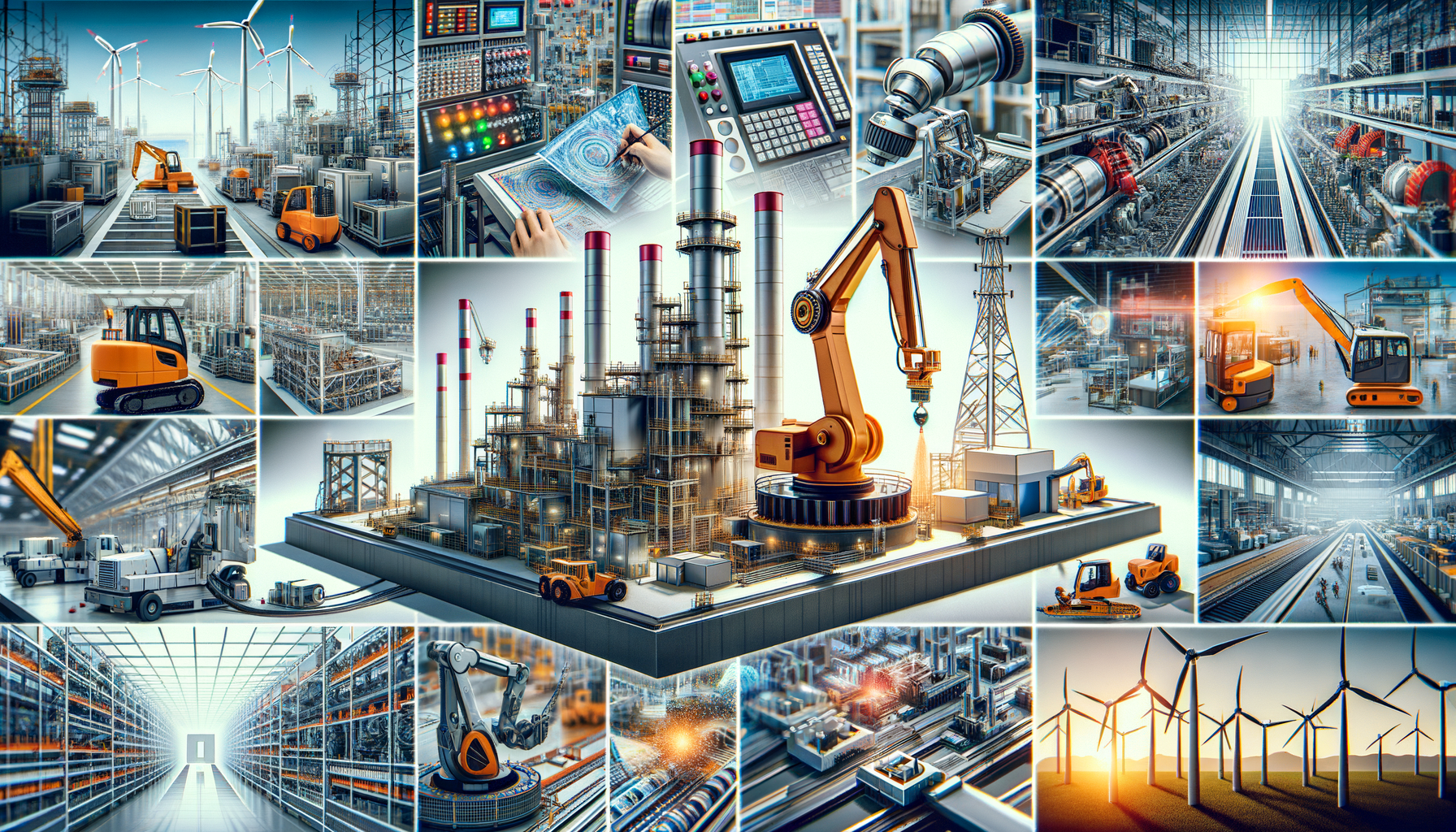The Role of Industrial Machines in Modern Manufacturing
Industrial machines have revolutionized modern manufacturing by providing the precision and efficiency needed to meet the demands of a global market. From assembly lines to robotic arms, these machines streamline production processes, ensuring products are made with consistent quality and in shorter time frames. The automation of tasks that were once manual has significantly reduced human error, leading to higher productivity levels.
Manufacturers benefit from industrial machines in several ways:
- Increased production speed
- Enhanced precision and consistency
- Reduced labor costs
- Improved safety conditions
By incorporating advanced technologies, such as artificial intelligence and machine learning, industrial machines are becoming smarter, enabling predictive maintenance and real-time monitoring of production lines. This advancement not only minimizes downtime but also extends the lifespan of the machinery, offering a substantial return on investment.
Industrial Machines in the Automotive Industry
The automotive industry heavily relies on industrial machines for manufacturing vehicles. From welding robots to paint spraying machines, these technologies ensure that each vehicle meets stringent quality standards. The precision offered by machines is crucial in assembling complex components, which directly impacts the safety and reliability of the vehicles.
Key benefits of industrial machines in the automotive sector include:
- Precision in assembly and welding
- Efficient management of supply chains
- Enhanced quality control
- Flexibility in production lines to accommodate different models
Moreover, the use of industrial machines allows automotive manufacturers to quickly adapt to market changes and consumer demands, such as the shift towards electric vehicles. This adaptability is essential for maintaining competitiveness in a rapidly evolving industry.
Impact on the Food and Beverage Sector
In the food and beverage sector, industrial machines play a pivotal role in ensuring safety and efficiency. Machines are employed for various processes, including sorting, packaging, and quality control, which are critical for maintaining hygiene standards and reducing waste.
Industrial machines offer several advantages in this sector:
- Consistent product quality
- Reduction in contamination risks
- Efficient packaging and labeling
- Minimized food waste
With the growing emphasis on sustainability, machines are being designed to use less energy and produce less waste, aligning with environmental goals. This shift not only benefits the environment but also helps companies reduce costs and improve their brand image.
Industrial Machines in the Textile Industry
The textile industry has seen significant advancements with the introduction of industrial machines. From spinning and weaving to dyeing and finishing, these machines have transformed how textiles are produced, enabling mass production and customization.
The benefits of industrial machines in this industry include:
- Increased production capacity
- Enhanced fabric quality
- Efficient use of raw materials
- Capability to produce complex designs
The integration of computer-aided design (CAD) and computer-aided manufacturing (CAM) in textile machines allows for intricate patterns and designs that were previously impossible. This technological leap has opened new avenues for creativity and innovation in fashion and home textiles.
Future Trends and Innovations in Industrial Machines
As technology continues to evolve, the future of industrial machines looks promising with several trends and innovations on the horizon. The integration of the Internet of Things (IoT) in industrial machines is set to revolutionize how they operate, offering real-time data and analytics to optimize performance.
Emerging trends in industrial machines include:
- Increased automation and use of robotics
- Smart factories with interconnected machines
- Adoption of sustainable and energy-efficient technologies
- Enhanced human-machine collaboration
These innovations are expected to further enhance productivity, reduce costs, and improve safety across various sectors. As industries continue to embrace digital transformation, the role of industrial machines will become even more integral in shaping the future of manufacturing and production.




Leave a Reply